Finding the Right Bulk Paper Cup Solution for Your Business
Procuring disposable paper cups in bulk is a fundamental requirement for a vast array of businesses, from bustling coffee shops and quick-service restaurants to corporate offices and large-scale event organizers. The choice of supplier and the specific type of cup can significantly impact your operational efficiency, brand perception, and bottom line. This comprehensive guide is designed to navigate you through the essential considerations, highlighting key product options and providing the knowledge needed to make an informed purchasing decision. We will delve into specialized product categories to help you identify the most cost-effective and reliable solutions for your specific needs. Within this guide, we will explore crucial aspects such as wholesale disposable paper cups with custom logos, the benefits of various cup types, and how to balance affordability with unwavering reliability.
Comprehensive Guide to Disposable Paper Cup Varieties
The world of disposable paper cups is more diverse than it might initially appear. Understanding the different materials, constructions, and intended uses is the first step toward selecting the perfect cup for your application. A one-size-fits-all approach does not work, as the needs of a hot coffee service differ greatly from those of a cold soft drink station or a soup takeaway service. This section will break down the primary categories of paper cups available on the wholesale market, examining their unique properties, advantages, and ideal use cases. By the end of this overview, you will be better equipped to evaluate which cup types align with your business model, customer expectations, and operational workflow, ensuring that you are not just purchasing cups, but investing in a functional component of your service.
Hot Drink Paper Cups: Insulation and Safety
Designed specifically for beverages like coffee, tea, and hot chocolate, these cups are engineered to protect the user's hands from heat while maintaining the drink's temperature. The key feature of most hot drink cups is the polyethylene (PE) coating on the interior, which creates a moisture barrier preventing the paper from becoming soggy and leaking. Many hot cups also feature a double-wall or insulated construction, which provides extra air padding to keep drinks hotter for longer and makes the cup more comfortable to hold. When sourcing disposable paper cups for hot and cold beverages, it is vital to ensure the product specification matches the temperature requirement. Using a single-wall hot cup for a boiling beverage might make it too hot to handle, while using an insulated cup for a cold drink could be an unnecessary expense.
- Single-Wall Cups: The most common and cost-effective option for standard hot beverages. They are typically made from paperboard with a single PE lining.
- Double-Wall Insulated Cups: These feature an extra layer of paper with an air gap in between, providing superior heat retention and a more substantial, premium feel.
- Sleeves: Often used in conjunction with single-wall cups, corrugated paper sleeves can be added to improve grip and heat protection, offering a modular and often cost-effective solution.
Cold Drink Paper Cups: Clarity and Condensation Resistance
Cold drink cups are designed for iced coffee, soda, juice, and water. They often have a different design philosophy compared to hot cups. While they still feature a protective lining to prevent leakage, the focus is on presenting the beverage appealingly and managing condensation. Many cold cups are made with a wax or PLA (a biodegradable polymer derived from plants) coating. A key consideration for businesses is the choice between eco-friendly disposable paper cups bulk options, such as those lined with PLA, which is compostable in industrial facilities, versus traditional PE-lined cups. Furthermore, the wall structure is usually single to reduce material use and cost, as insulation is not a primary concern for cold beverages.
- PLA-Lined Cups: An excellent choice for businesses emphasizing sustainability. These cups have a bioplastic lining that is derived from renewable resources and is commercially compostable.
- Clear Plastic Windows: Some cold cups incorporate a clear plastic strip or are fully wrapped in a clear material, allowing the colorful beverage to be visible, which can be highly appealing for marketing frozen drinks and cocktails.
Key Considerations When Choosing a Bulk Supplier
Selecting a supplier for your disposable paper cups is a strategic decision that goes beyond just comparing price per unit. A reliable partner ensures consistent product quality, on-time delivery, and can adapt to your evolving business needs. This section outlines the critical factors you should evaluate before committing to a long-term supplier. We will discuss the importance of supply chain reliability, customization capabilities, and the overall value proposition, which includes assessing the total cost of ownership rather than just the initial invoice amount. For instance, a supplier offering bulk buy disposable paper cups for large events must demonstrate logistical prowess and the ability to handle large, time-sensitive orders without compromising on quality or delivery schedules.
Supply Chain Reliability and Consistency
In the food service and event industries, running out of a fundamental item like cups is not an option. A supplier's reliability is paramount. This encompasses their ability to maintain ample stock, fulfill orders accurately, and deliver them within the promised timeframe. A delay in cup delivery can directly lead to lost sales and operational chaos. When evaluating a supplier, inquire about their inventory levels, their contingency plans for supply chain disruptions, and their track record with other clients of a similar scale to your business. A reliable supplier acts as an extension of your operations, providing peace of mind and allowing you to focus on core business activities.
- On-Time Delivery Performance: Request data or references regarding their historical delivery performance.
- Inventory Transparency: A good supplier can provide clear information about their stock levels and lead times for restocking.
- Communication Protocols: Ensure they have a responsive customer service team and a system for proactively communicating any potential delays or issues.
Customization and Branding Opportunities
Disposable paper cups are not just functional items; they are mobile billboards for your brand. The ability to customize cups with your logo, colors, and design can significantly enhance brand recognition and create a more professional and cohesive customer experience. When exploring wholesale disposable paper cups with custom logos, it is essential to understand the supplier's customization process, minimum order quantities (MOQs), and the quality of their printing. Different suppliers offer various printing techniques, such as flexographic printing, offset printing, or digital printing, each with its own cost, quality, and setup implications.
- Printing Quality and Options: Assess samples to check for color vibrancy, alignment, and clarity. Inquire about the number of colors available and any limitations on design complexity.
- Minimum Order Quantities (MOQs): Custom printing typically requires a higher MOQ than standard stock cups. Ensure the MOQ aligns with your storage capacity and budget.
- Artwork and Setup Process: Understand the timeline and requirements for submitting artwork, including file formats and proofing stages.
Specialized Solutions for Different Business Needs
Different business scenarios demand different paper cup solutions. A product that is perfect for a daily coffee shop might not be suitable for a large festival or a healthcare facility. This section explores specialized product options and sourcing strategies tailored to specific high-volume environments. By understanding these niche requirements, you can ensure that the cups you purchase not only serve their primary function but also address secondary concerns such as portability, waste management, and specialized safety standards. For example, sourcing disposable paper cups for restaurant takeaway requires a focus on durability and secure lids to prevent spills, while orders for large events might prioritize stackability and ease of distribution.
Sourcing for Large Events and Catering
Ordering bulk buy disposable paper cups for large events presents a unique set of challenges and requirements. Volume, logistics, and functionality are all critical. The cups must be easy to transport, store, and distribute quickly to large numbers of people. Furthermore, event organizers are increasingly seeking eco-friendly disposable paper cups bulk options to minimize the environmental impact of their gatherings. This involves considering cups that are not only recyclable but also compostable, aligning with the sustainability goals of the event.
When comparing cups for large events, several factors come into play beyond just price. The table below outlines a comparison between standard PE-coated cups and PLA-coated compostable cups for this specific application:
| Feature | Standard PE-Coated Cups | PLA-Coated Compostable Cups |
|---|---|---|
| Environmental Impact | Recyclable in some specialized facilities, but often ends up in landfill due to sorting challenges. | Commercially compostable, breaking down into organic matter in industrial composting facilities. |
| Cost Consideration | Generally lower upfront cost per unit. | Typically higher upfront cost, but price is decreasing as demand grows. |
| Functionality for Cold Drinks | Excellent performance, widely used for sodas and iced beverages. | Good performance, but may have slightly lower resistance to very acidic or alcoholic beverages over long periods. |
| Consumer Perception | Viewed as a standard, conventional option. | Viewed positively by environmentally conscious attendees, enhancing the event's green credentials. |
| End-of-Life Management | Requires access to a specific recycling stream; otherwise, it is trash. | Requires access to industrial composting facilities; clear signage and separate collection bins are needed. |
Optimizing for Restaurant Takeaway and Delivery Services
The demand for disposable paper cups for restaurant takeaway has skyrocketed. For this application, the cup is a critical part of the customer's experience away from the premises. The primary concerns are leak prevention, heat retention (for hot drinks), and structural integrity during transport. A cup that fails during a delivery journey can lead to customer complaints, refunds, and damage to your brand's reputation for quality. Therefore, the choice of cup and, just as importantly, the matching lid, is crucial.
- Lid Compatibility and Security: The lid must create a perfect seal with the cup rim. Look for features like locking tabs or specially designed gaskets that prevent leaks even if the cup is jostled.
- Durability of Materials: The paper stock should be sturdy enough to resist deformation when gripped tightly or placed in a car cup holder. A higher grammage (thickness) of paperboard often indicates better durability.
- Designated sip-hole openings that are easy for the customer to open but are secure during transit.
Making a Cost-Effective and Sustainable Choice
The final decision in purchasing bulk disposable paper cups involves a careful balance between cost, functionality, and environmental responsibility. While the initial unit price is a significant factor, it should not be the only one. The true cost includes potential savings from reduced waste (through optimal sizing), the marketing value of branding, and the avoidance of costly failures like leaks. Simultaneously, the market is shifting towards more sustainable options. Understanding the distinctions between recyclable, compostable, and biodegradable claims is essential for making a choice that aligns with both your budget and your corporate values. Exploring options like cheap disposable paper cups in bulk quantities requires a discerning eye to ensure that "cheap" does not equate to low quality or an unacceptable environmental footprint.
Evaluating the True Cost of Ownership
When searching for cheap disposable paper cups in bulk quantities, it is vital to look beyond the sticker price. The true cost of ownership encompasses several hidden factors. A slightly more expensive cup that is more reliable could save money in the long run by reducing waste from damaged products and preventing customer service issues. Consider the following elements when calculating the true cost:
- Waste from Breakage or Failure: Inferior cups are more prone to breaking in transit or leaking, leading to a portion of your order being unusable.
- Operational Efficiency: Cups that are easy to stack, store, and handle can save labor time. Similarly, lids that fit seamlessly improve the speed of service.
- Brand Value: A well-branded, high-quality cup can enhance customer perception and loyalty, which has a tangible, though difficult to quantify, financial value.
Navigating Eco-Friendly Claims and Certifications
The terminology around sustainable paper cups can be confusing. "Biodegradable," "Compostable," and "Recyclable" are often used, but they have specific meanings. As a business, making an informed choice requires understanding these differences and looking for independent certifications to validate the claims. For instance, a cup labeled as "compostable" should ideally have a certification like BPI (Biodegradable Products Institute) in the United States or equivalent standards in other regions, which verifies that it will break down in a commercial composting facility within a specified timeframe.
- Recyclable: The cup can be processed and remanufactured into new products. However, the PE coating in many standard cups makes recycling difficult, requiring specialized facilities.
- Compostable: The cup will break down into non-toxic organic matter (compost) in a commercial composting environment. This applies to the entire cup, including the lining (e.g., PLA).
- Biodegradable: A broader term meaning the material will break down naturally over time by biological activity. This can happen in any environment (including landfill) and does not specify a timeframe or whether it leaves behind harmful residues.
Choosing a supplier that offers clear, certified information about the environmental attributes of their products is a key step in making a responsible and credible choice for your business and your customers.

 English
English Español
Español عربى
عربى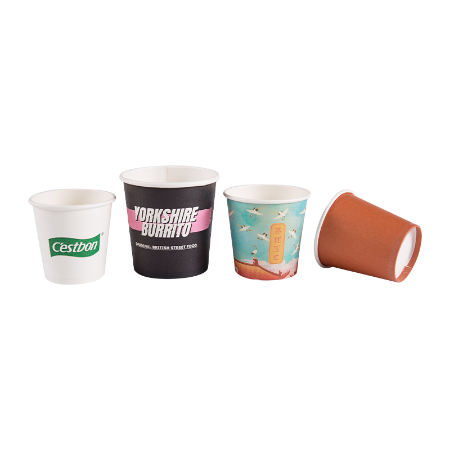
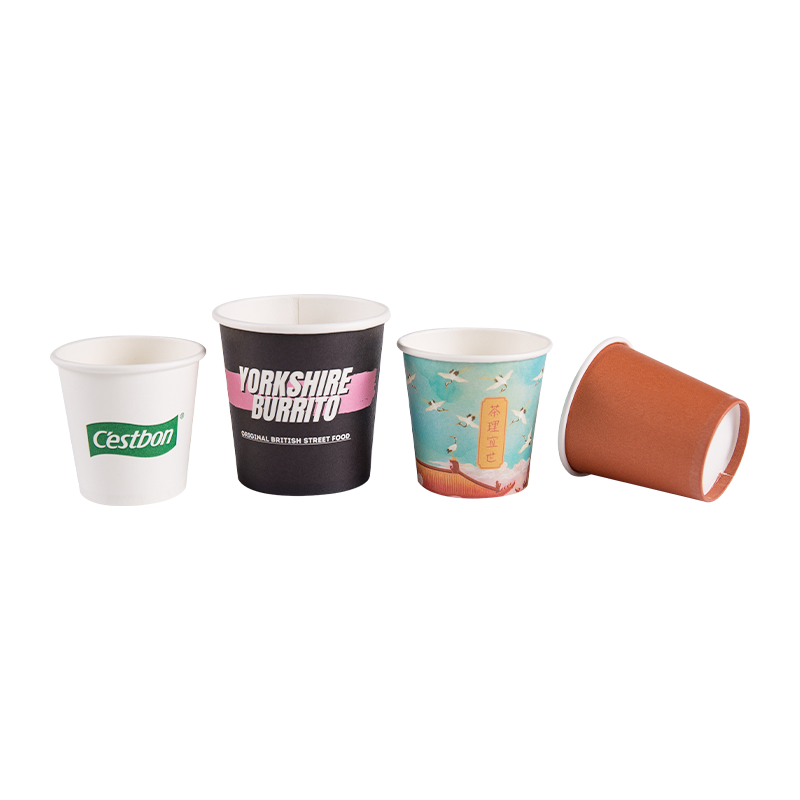
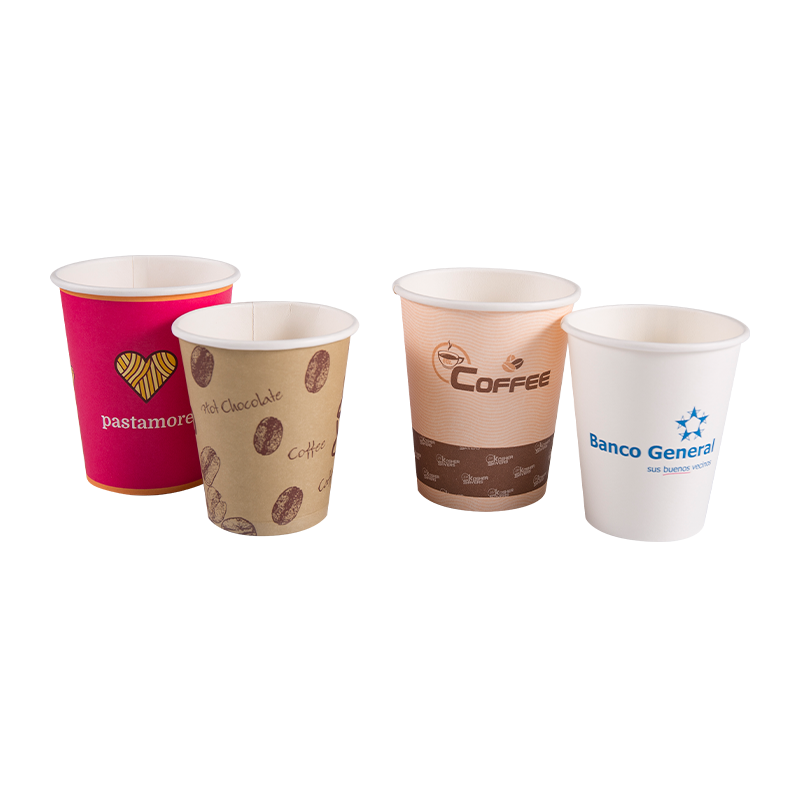
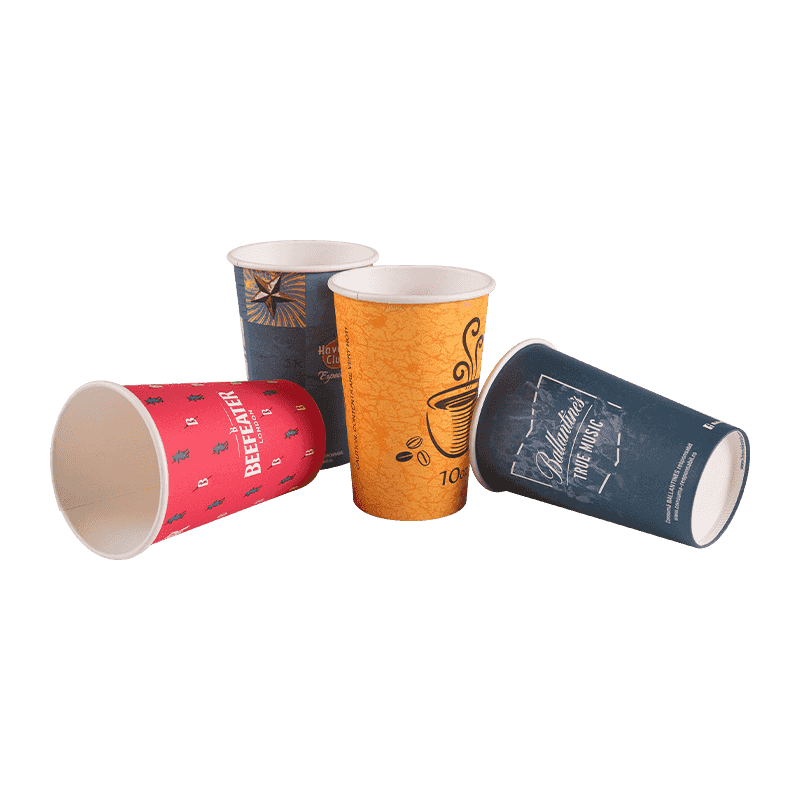
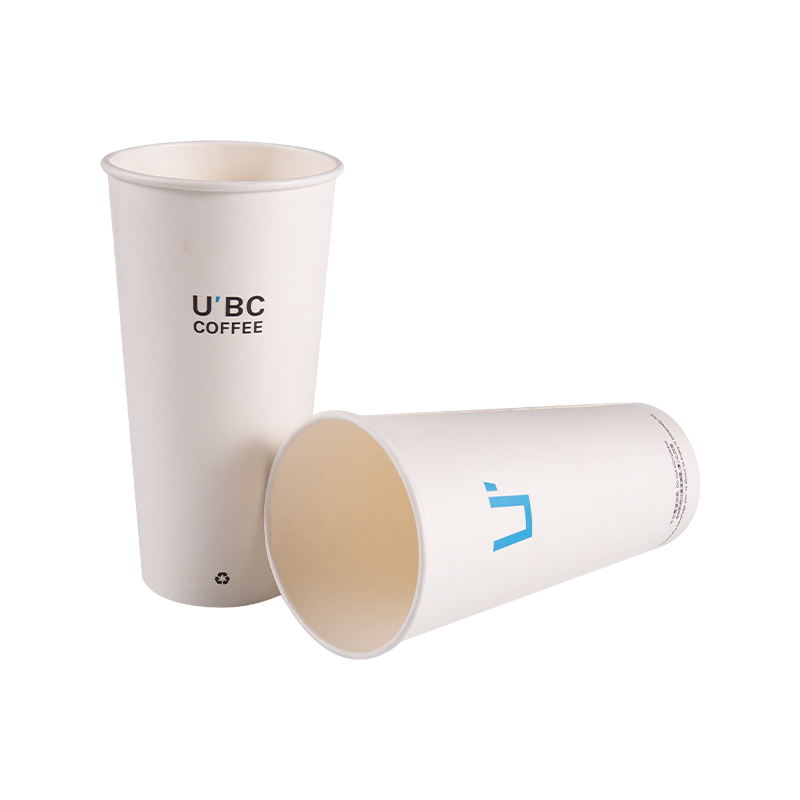
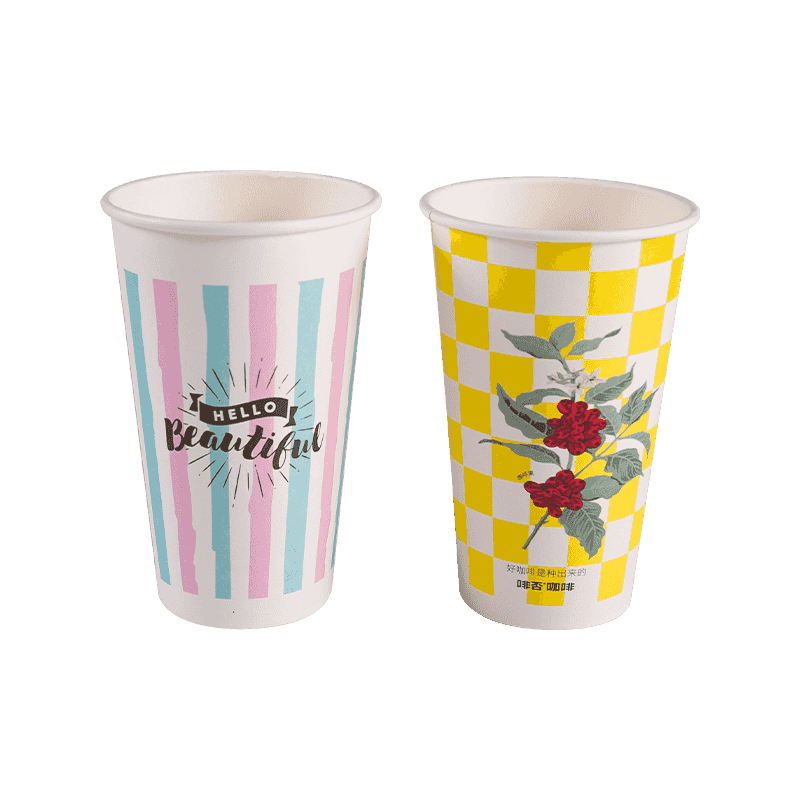
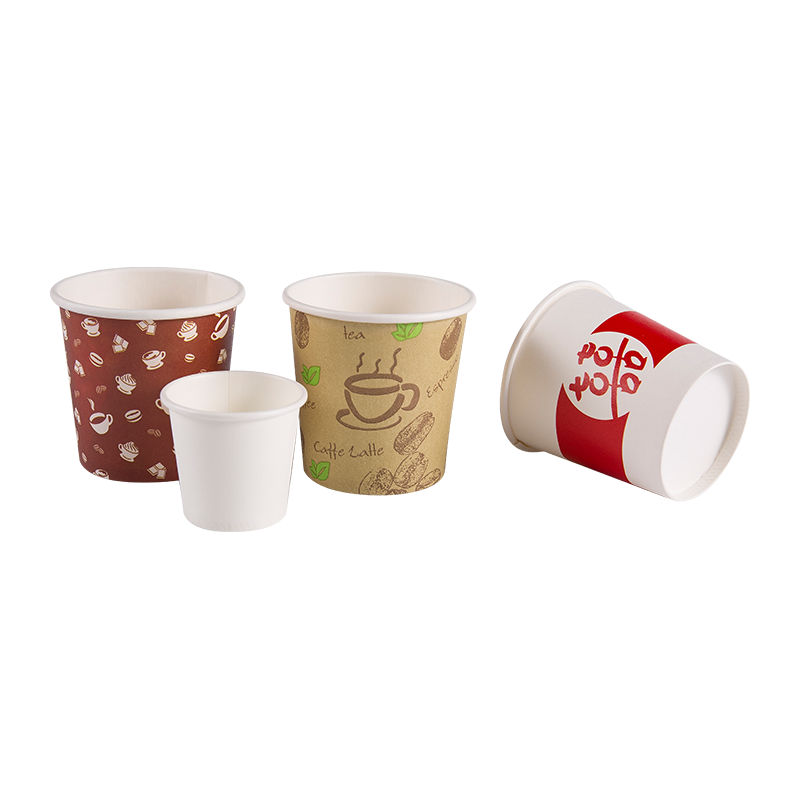
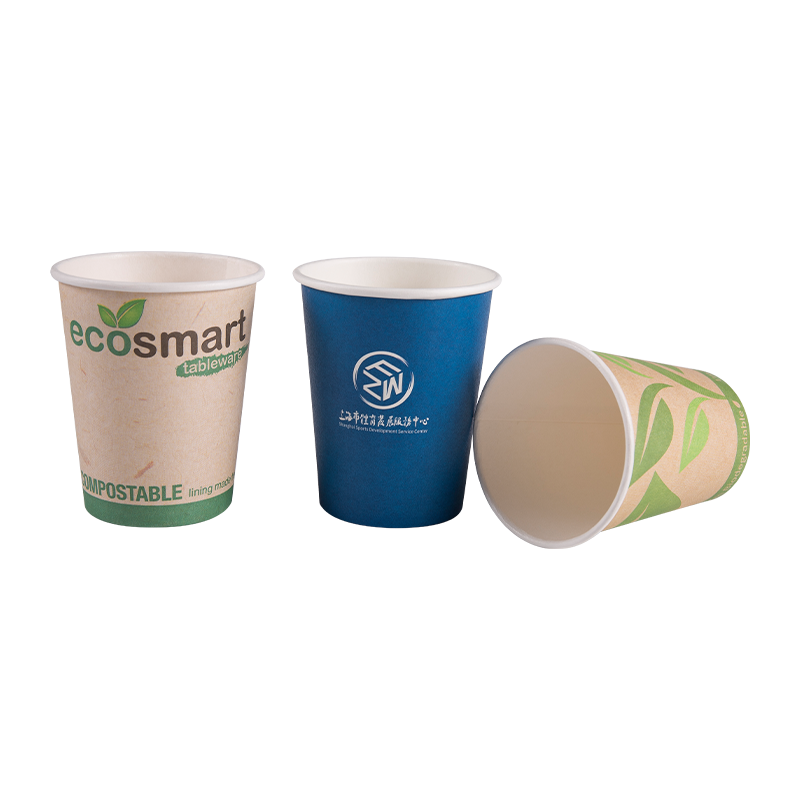
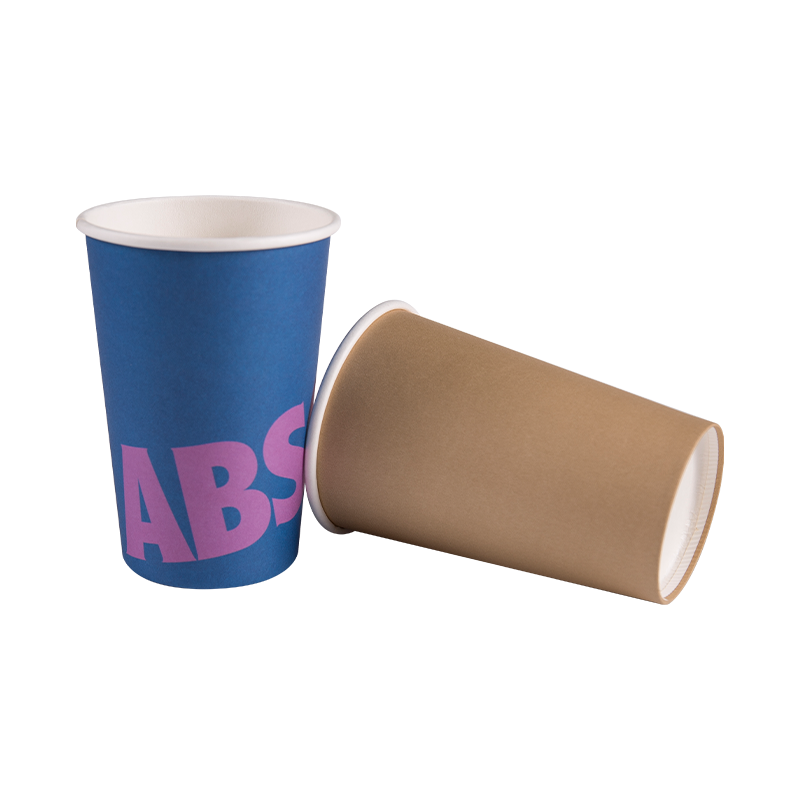
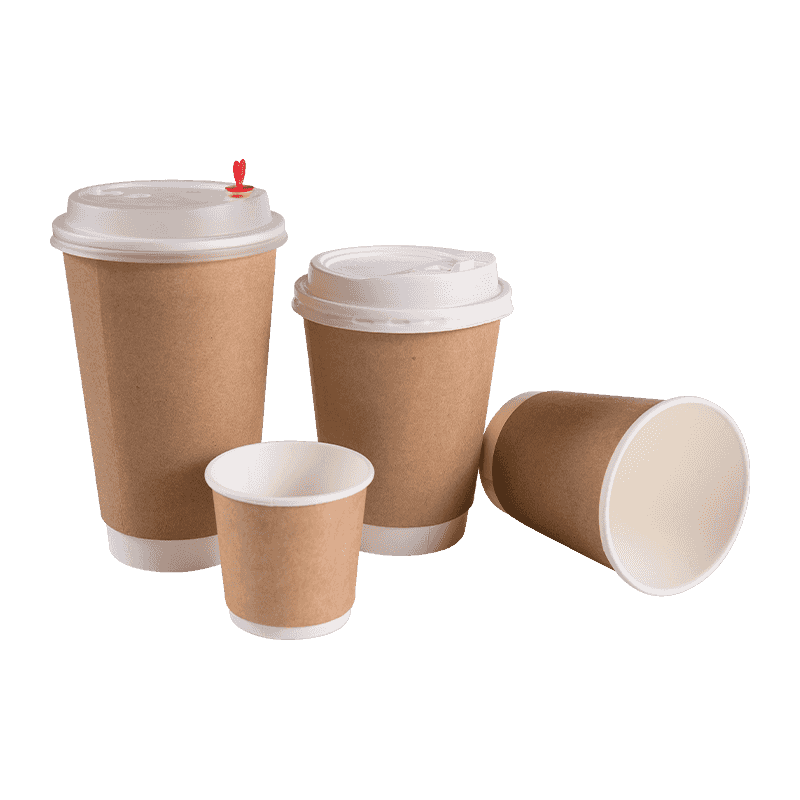
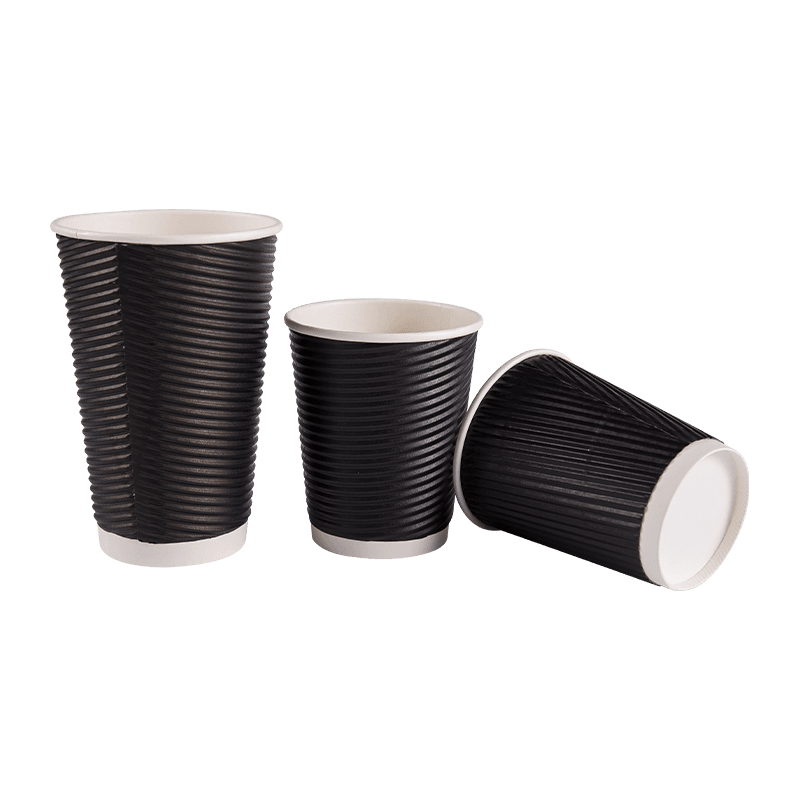
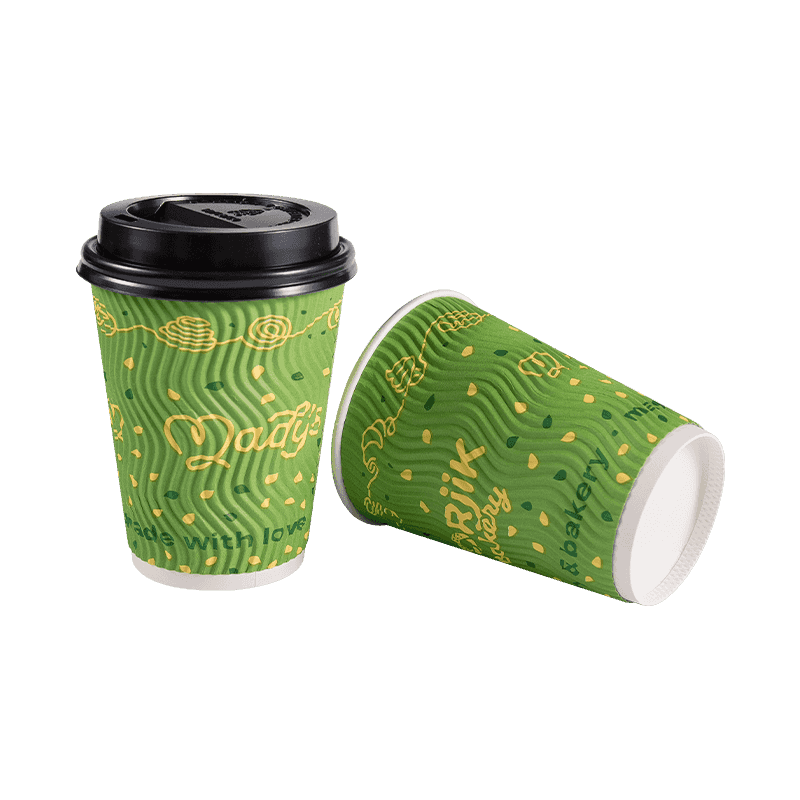
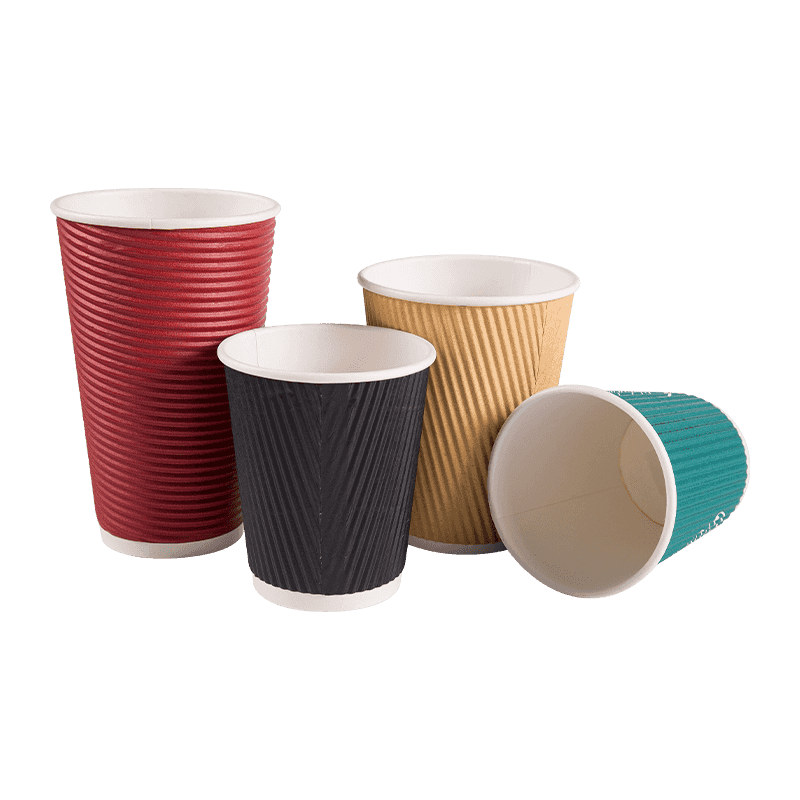

 +86-0563-8029081
+86-0563-8029081
 +86-0563-8029081
+86-0563-8029081 No. 12 Sanxi Road, Xinqiao Development Zone, Jingde Country, Xuancheng City, Anhui Province.
No. 12 Sanxi Road, Xinqiao Development Zone, Jingde Country, Xuancheng City, Anhui Province.